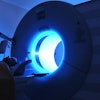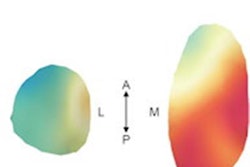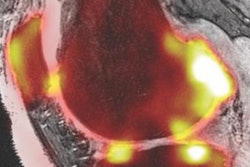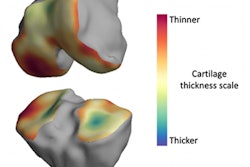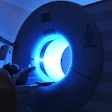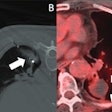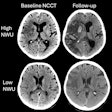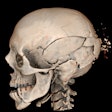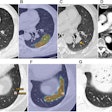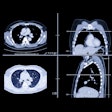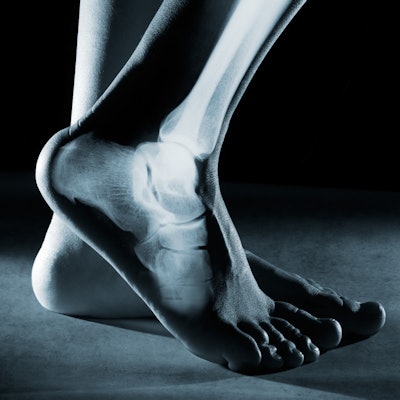
Weight-bearing CT can help clinicians quantify tibiotalar joint space after tibial pilon fracture -- a measure that can indicate early post-traumatic osteoarthritis, according to a study published May 6 in the Journal of Bone and Joint Surgery.
"Weight-bearing computed tomography (WBCT) scans provide a means for measuring joint space while the ankle is in a loaded, functional position," wrote a team led by Dr. Michael Willey of the University of Iowa Hospital and Clinics in Iowa City.
The study included 20 patients with intra-articular tibial pilon fractures that had been treated with surgery who underwent bilateral, ankle weight-bearing CT scans six months after the injury. Radiologists measured joint space at nine regions on sagittal images, repeating the measurements two weeks later.
The group found that mean tibiotalar joint space was 21% less in the injured ankles compared with the healthy ones, with the midlateral and midcentral regions of the joint showing the greatest decrease.
"[Weight bearing CT offers] a simple, standardized, and reliable technique to quantify tibiotalar joint space following tibial pilon fracture," Willey and colleagues concluded. "This tool can be used to longitudinally quantify loss of joint space following pilon fracture and assess the impact of interventions to reduce post-traumatic osteoarthritis."
